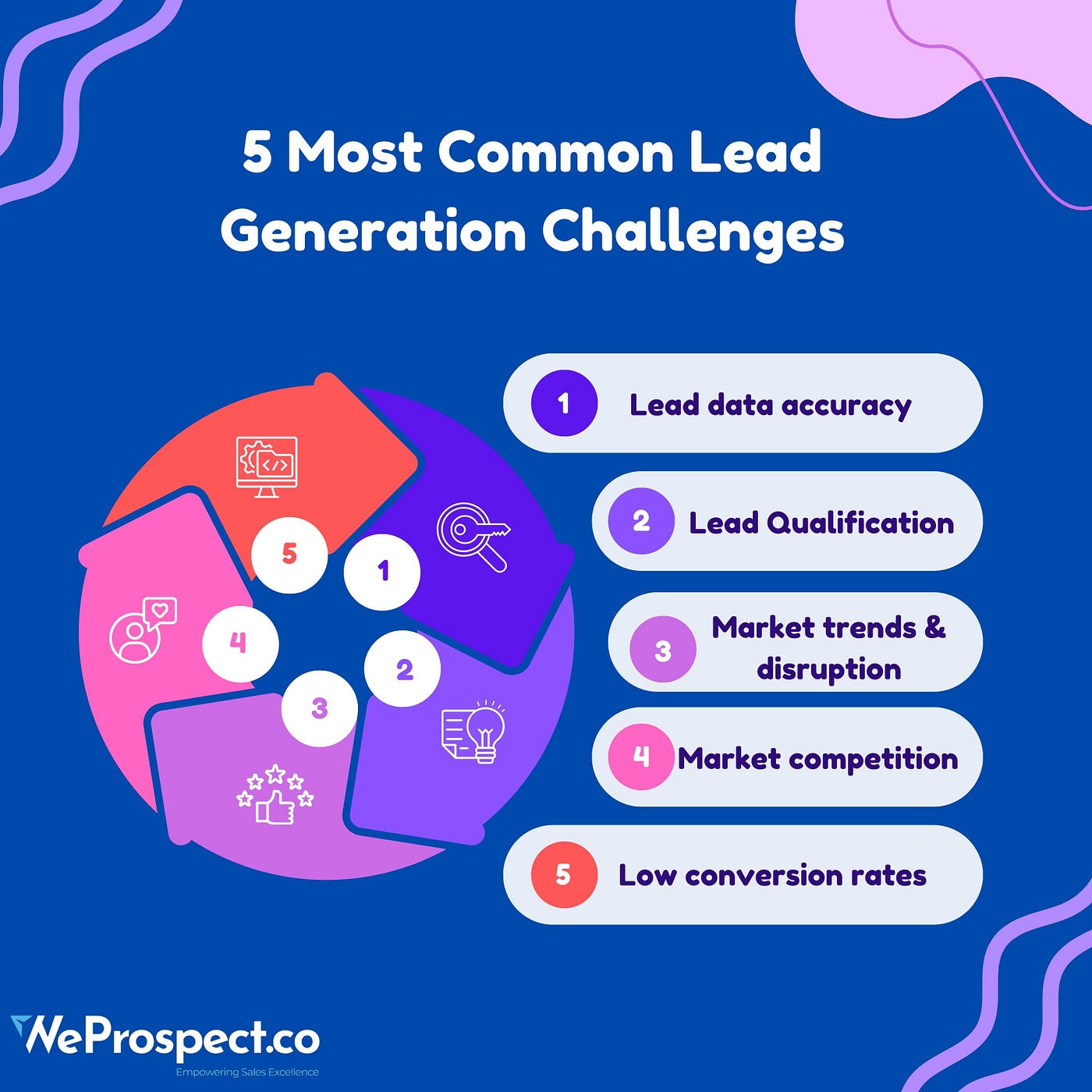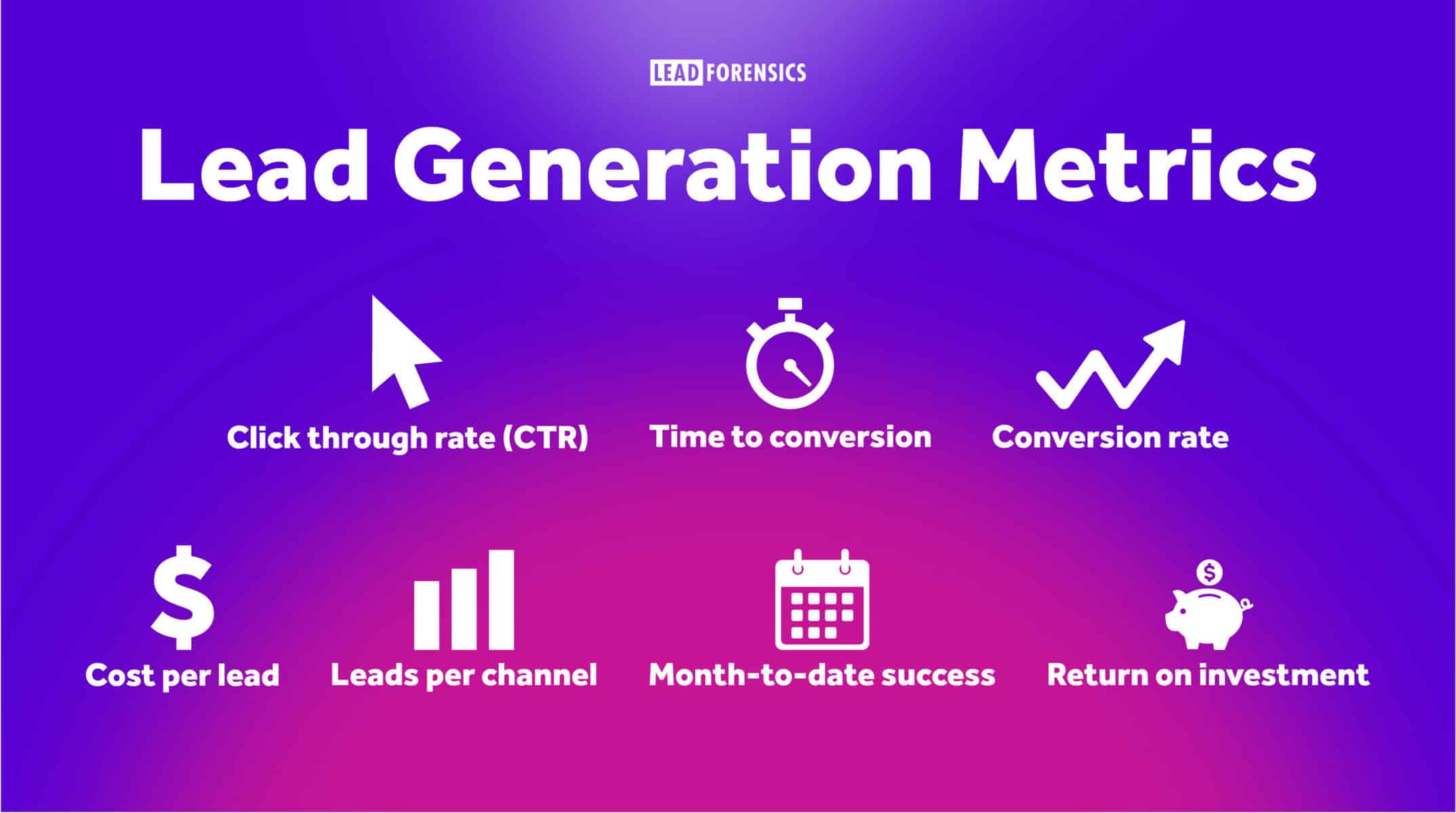SHARE

Lead generation is a crucial aspect of any successful accounting practice. It refers to capturing potential clients’ interest and converting them into valuable leads or prospects. In the accounting industry, lead generation involves identifying and attracting individuals or businesses that need accounting services to build a robust clientele. Lead generation is not a one-size-fits-all approach; it requires a tailored strategy that aligns with an accounting firm’s needs and goals. This can involve combining digital marketing techniques, networking events, referrals, and targeted advertising campaigns. By understanding the unique requirements of their target market, accountants can craft compelling lead-generation initiatives that resonate with potential clients.
The Role of Lead Generation in Building a Robust Clientele
Lead generation is vital in establishing a strong and sustainable client base for accountants. It allows professionals to expand their reach, increase brand awareness, and acquire new clients. By investing time and effort into effective lead generation strategies, accountants can ensure a steady flow of potential clients, leading to business growth and success.
Moreover, lead generation is about acquiring new clients and fostering long-term relationships with existing clients. Accountants can enhance customer loyalty and encourage repeat business by staying engaged with their client base and consistently providing value-added services. This customer-centric approach to lead generation drives revenue growth and solidifies the accounting firm’s reputation in the industry.

Strategies for Effective Lead Generation
Utilising Digital Marketing for Lead Generation
In today’s digital age, leveraging online platforms is paramount for successful lead generation. Accountants can use various digital marketing techniques to attract potential clients, such as search engine optimisation (SEO), social media marketing, and content marketing. Building an informative website, optimising it for search engines, and creating valuable content can greatly enhance the visibility of accounting services, making it easier for potential clients to find and engage with the practice.
However, accountants must stay updated with digital marketing trends and strategies. The digital landscape constantly evolves, and what works today may not be as effective tomorrow. Accountants should regularly monitor their website’s performance, analyse data, and adjust their digital marketing campaigns. By staying proactive and adaptable, accountants can stay ahead of the competition and continue to generate high-quality leads.
Networking as a Lead Generation Tool
Networking remains a timeless strategy for lead generation in the accounting industry. Attending industry conferences, joining professional associations, and participating in local events can help accountants establish valuable connections. By meeting fellow professionals, potential clients, or even referral sources, accountants can create opportunities for collaboration and word-of-mouth recommendations, ultimately leading to new client acquisition.
However, effective networking goes beyond simply attending events. Accountants should focus on building genuine relationships and providing value to others. By offering insights, sharing knowledge, and being a helpful resource, accountants can position themselves as trusted advisors within their network. This increases the likelihood of referrals and opens doors to potential partnerships and collaborations that can further expand their client base.
The Power of Referrals in Lead Generation
Referrals are one of the most effective and cost-efficient lead-generation methods for accountants. Satisfied clients can serve as powerful advocates for an accounting practice by referring their friends, family, or business contacts. Accountants can actively encourage referrals by providing excellent customer service, offering referral incentives, and maintaining strong relationships with existing clients. By focusing on client satisfaction and nurturing relationships, accountants can tap into the potential of referrals as a valuable source of new leads.
However, accountants should remember that referrals are not automatic. They require ongoing effort and dedication. Accountants should consistently deliver exceptional service, exceed client expectations, and regularly communicate with their clients to ensure satisfaction. By consistently providing value and demonstrating expertise, accountants can foster a strong referral culture within their practice, leading to a steady stream of high-quality leads.

Overcoming Common Lead Generation Challenges
Addressing the Issue of Low-Quality Leads
In the lead generation process, accountants may encounter low-quality leads that do not convert into paying clients. To optimise the return on investment in lead generation efforts, it is essential to identify and address this challenge. One way to address low-quality leads is by refining the targeting criteria. By clearly defining the ideal client profile and modifying marketing strategies to reach the right audience, accountants can filter out low-quality leads and focus on potential clients more likely to convert.
Furthermore, when dealing with low-quality leads, accountants must implement lead-nurturing strategies. Accountants can build relationships and trust with potential clients by communicating regularly with leads through personalised emails, targeted content, and follow-up calls. This approach increases the chances of converting leads into clients and helps establish long-term client loyalty.
Dealing with a Lack of Lead Diversity
Another common challenge in lead generation is a lack of lead diversity. Relying too heavily on a single lead source can be risky, as it puts the practice at the mercy of that particular channel. To overcome this challenge, accountants should diversify their lead generation efforts. This can be done by exploring multiple marketing channels, such as online advertising, direct mail campaigns, or industry partnerships. By diversifying lead sources, accountants can reduce their dependence on any channel and ensure a steady stream of potential clients.
Moreover, accountants can leverage the power of networking and referrals to enhance lead diversity. Building strong relationships with existing clients, industry peers, and strategic partners can lead to valuable referrals and introductions to new leads. Networking events, industry conferences, and online communities are excellent platforms for expanding professional connections and generating diverse leads for the practice.

Measuring the Success of Your Lead Generation Efforts
Success in lead generation is not just about the quantity of leads but also about the quality. Understanding the key performance indicators (KPIs) for lead generation is essential for accountants to evaluate the effectiveness of their strategies. By delving into metrics such as conversion rates, cost per lead, and return on investment, accountants can understand how well their lead-generation efforts perform.
Key Performance Indicators for Lead Generation
Measuring the success of lead generation efforts is crucial for identifying areas of improvement and maximising results. Accountants can track key performance indicators (KPIs) to gauge the effectiveness of their lead-generation strategies. KPIs may include the number of leads generated, conversion rates, cost per lead, and return on investment. By regularly monitoring and analysing these metrics, accountants can make data-driven decisions and optimise their lead-generation tactics.
Interpreting Lead Generation Data for Improvement
The data collected from lead generation efforts can provide valuable insights into the effectiveness of various strategies and tactics. By interpreting this data, accountants can identify patterns, trends, and areas that require improvement. For example, if a specific marketing channel consistently generates more high-quality leads, the practice can invest more resources in that particular channel. Likewise, if certain strategies are not yielding the desired results, adjustments can be made to enhance their effectiveness. Regular analysis and interpretation of lead generation data are essential for a proactive and adaptable approach to client acquisition.
Furthermore, qualitative feedback from leads can also offer valuable insights beyond the quantitative data. Understanding why leads convert or do not convert can help accountants tailor their approach to better meet potential client’s needs and expectations. By combining quantitative metrics with qualitative feedback, accountants can better understand their lead-generation efforts and make informed decisions to drive better results.

Future Trends in Lead Generation for Accountants
Technology continues to revolutionise the way accountants generate leads. Automation tools, artificial intelligence, and data analytics can streamline lead generation processes and improve efficiency. Accountants should embrace technological advancements to stay competitive and capitalise on emerging opportunities. Leveraging tools such as customer relationship management (CRM) systems, chatbots, and personalised email marketing can enhance lead generation efforts and create a more personalised experience for potential clients.
The Role of Social Media in Future Lead Generation
Social media platforms have become an integral part of modern lead-generation strategies. Accountants can leverage platforms like LinkedIn, Twitter, and Facebook to connect with potential clients, share valuable content, and build relationships. Social media advertising, targeted campaigns, and content distribution can help accountants reach a wider audience and generate quality leads. With social media’s continuous evolution, accountants should stay updated on the latest trends and use these platforms to their advantage.
To build a robust clientele, accountants must recognise the importance of lead generation and invest in effective strategies. By understanding the role of lead generation, utilising digital marketing, networking, and referrals as lead generation tools, overcoming common challenges, measuring success through key performance indicators, and embracing future trends, accountants can create a steady stream of high-quality leads and build a thriving practice.
Frequently Asked Questions About How Accountants Can Build a Robust Clientele
What Are the Top Strategies For Accountants To Generate More Leads?
Key strategies include leveraging digital marketing and SEO, networking through professional bodies, offering free initial consultations, and utilising social media platforms to showcase expertise and attract potential clients.
How Can Accountants Use Social Media For Lead Generation?
Accountants can use social media to share insightful content related to finance and taxation, engage with followers through Q&A sessions, and use targeted ads to reach potential clients in specific industries or regions.
What Role Does Content Marketing Play In Lead Generation For Accountants?
Content marketing plays a crucial role by establishing accountants as authoritative voices. This can be achieved through blogging, creating informative videos, and offering downloadable guides or whitepapers that address common financial challenges.
Can Offering Free Consultations Help In Generating More Leads?
Yes, offering free consultations can significantly help in lead generation. It allows potential clients to experience the value of your services without commitment, builds trust, and allows accountants to showcase their expertise and how they can solve specific financial issues.









